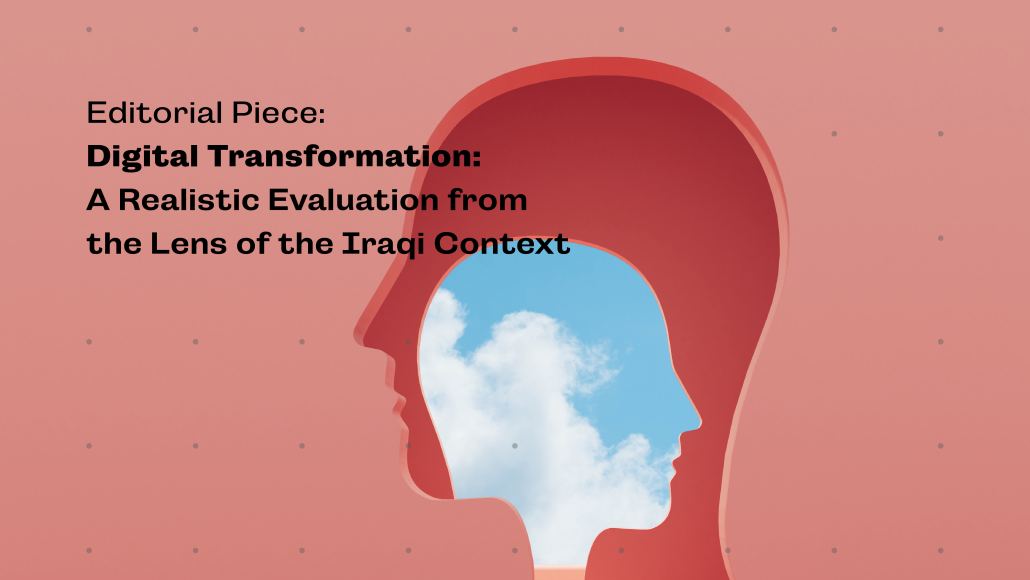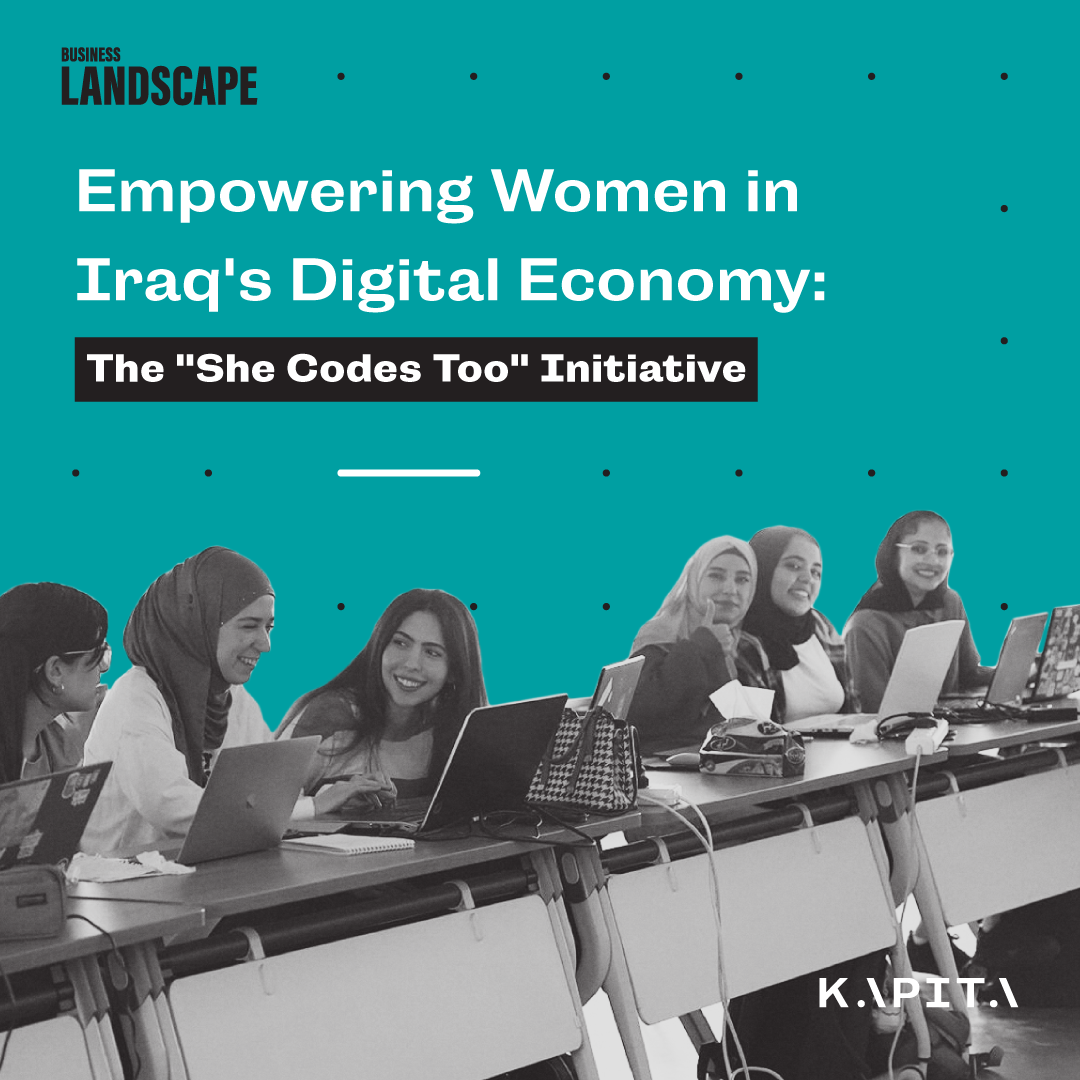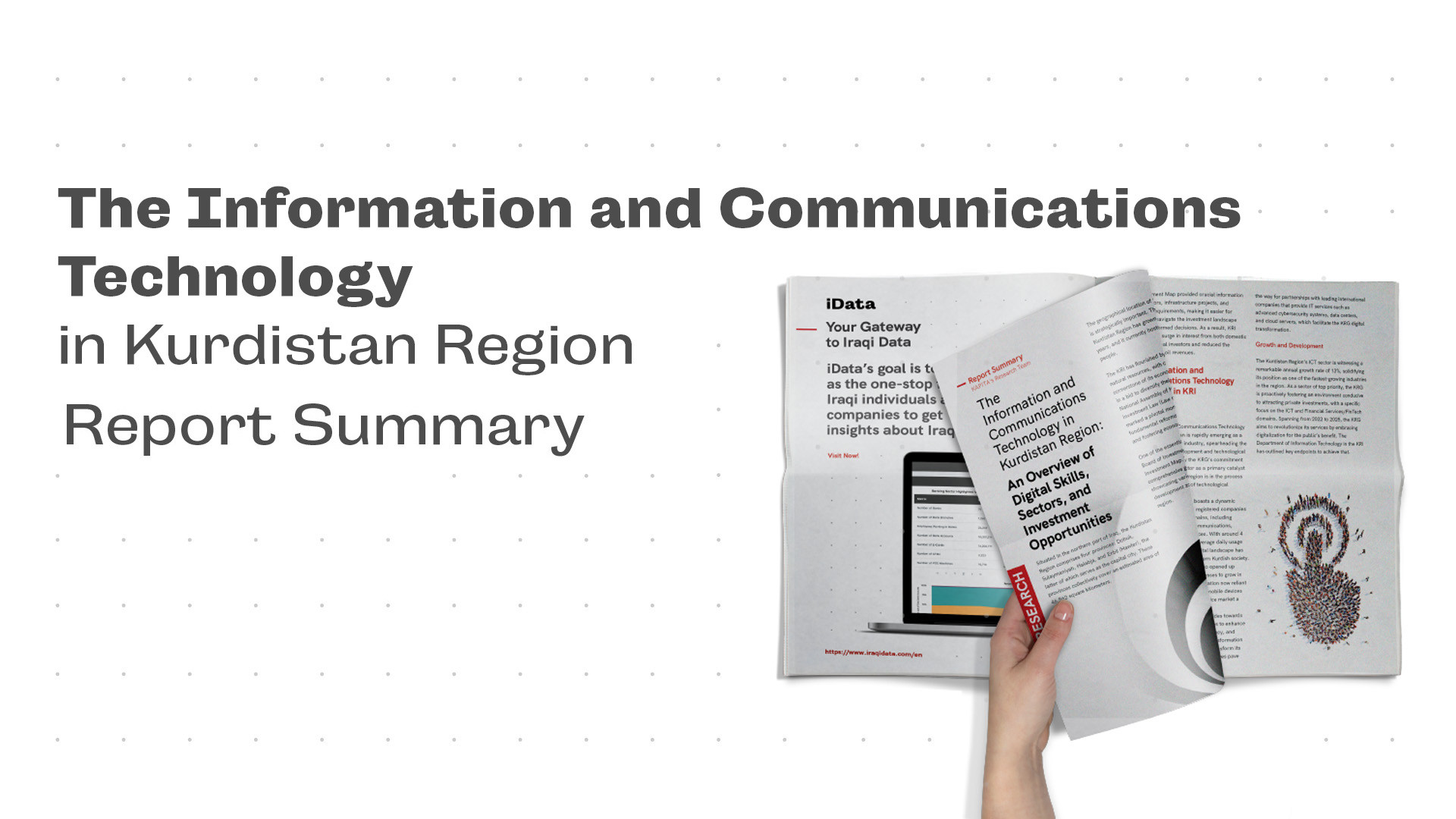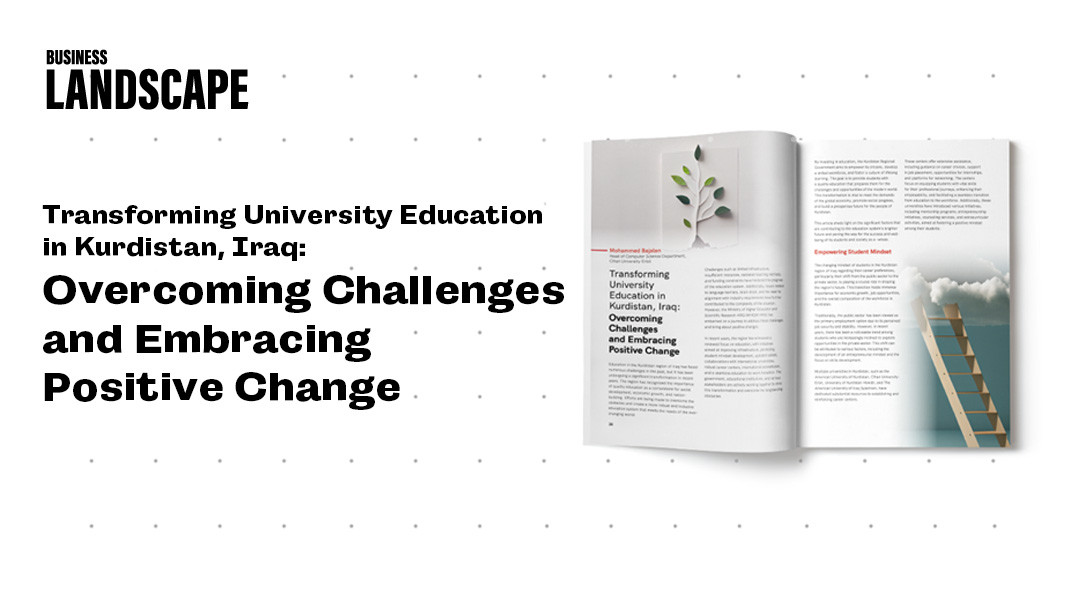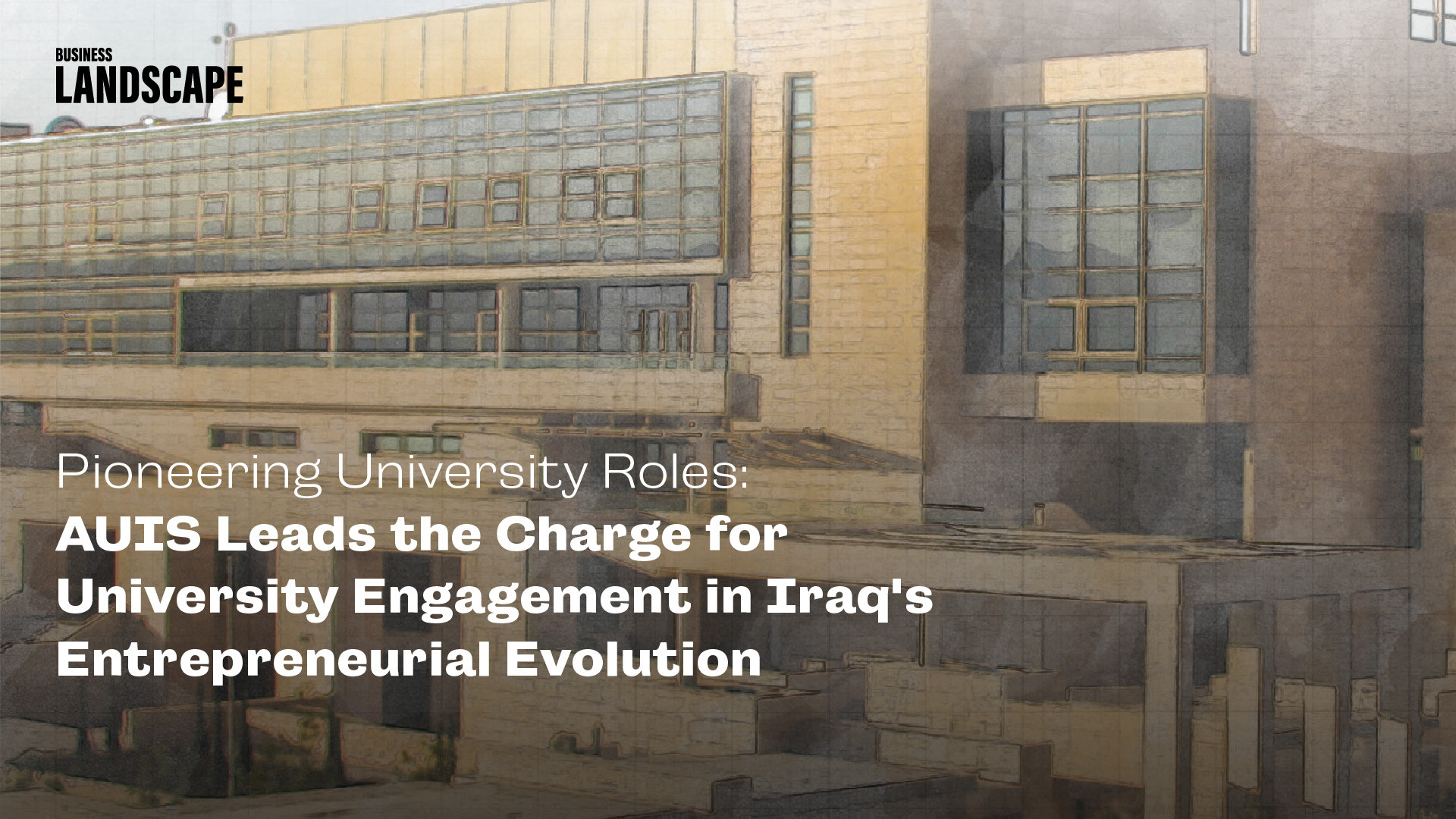Digital Transformation: A Realistic Evaluation from the Lens of the Iraqi Context
Safwa Salim
Executive Editor
Business LANDSCAPE Magazine
The term digital transformation in the Iraqi context could be a slippery slope when it comes to exploring the tangible impact it is making on the lives of its people. While it may appear that Iraq is lagging behind in comparison to other countries in the region, it is undeniable that slow and steady processes are gradually embracing technology and innovation across various aspects of daily life, businesses, and governance.
Since it is already summer, it might be the perfect season to examine the effects of digital transformation on the lives of Iraqis. Summer is a time when many people plan vacations abroad to escape the scorching heat. The journey begins with a valid passport, and Iraq's e-passport platform has transformed the process. Citizens can now apply online for an appointment to renew or obtain their passports, and the new Iraqi passport has an electronic chip that allows for seamless check-ins and check-outs through electronic gates.
Moreover, the government's implementation of the Tabadul e-payment system provides citizens with a secure and convenient digital payment method, eliminating the use of cash for passport issuance fees. The shift to digital payments streamlines transactions and enhances financial security for all parties involved. (Read more on page X, The Rise of Digital Solutions: Reshaping the Iraqi Consumer Habits and Redefining the Future by Al-Muheleb Al-Zaidy).
Planning international travel is now simplified through applications like Kawenter, enabling individuals to inquire about visa requirements and even apply online for certain countries. Booking flight tickets and hotel reservations have become hassle-free through applications like Sindibad and Safr, offering convenience at the fingertips of travelers. (Read more on page X,
The Recipe for Building a Mobile Application for the Iraqi Market, by Ahmed Sobhi).
As digital transformation permeates various aspects of daily life, mobile telecommunications have also undergone significant changes. Individuals can now opt for e-SIMs at their mobile service provider centers, allowing them to switch to foreign SIM cards upon reaching their destinations, ensuring seamless connectivity abroad. (Read more on page X, The Digitalization Landscape in Iraq and the MENA Region: Lessons to Learn From by Omer Faleh).
For those looking to purchase necessary items before traveling, e-commerce platforms like Miswag and Tamata offer many options, making shopping experiences more convenient and accessible for consumers. Or they can use ride-hailing apps like Careem and Baly to go to retail stores if they prefer to shop in person. (Read more on page X, Digital Transformation in Iraq: Mobile & Web Applications Solutions and Timelines by KAPITA’s Research Team).
While it is true that Iraq faces unique challenges in its digital transformation journey, such as limited infrastructure and regulatory frameworks, the gradual adoption of technology is making a noticeable impact. Instead of expecting a massive change overnight, we must recognize that digital transformation is a step-by-step process, and each small advancement contributes to the nation's progress. (Read more on page X, Beyond the Buzzwords: The Core Elements, Unique Challenges, and Opportunities for Digital Transformation in Iraq by Difaf Alassam).
The impact of digital transformation can also be seen through the change in the Iraqi private sector towards a customer-centric approach, leading to increased demand for B2B services, especially services that enable companies to make data-informed decisions. (Read more on page X, The Emergence of New B2B Services and the Adoption of a Customer-centric Approach: The Case of Outsourced Call Centers by Mohammed Jamal and Nasser Abdullah).
Moreover, digitalization seeped into other sectors and processes, increasing efficiency and accuracy. For instance, the tedious traditional paper-based university admissions system has been replaced by implementing the Private Education Admissions System (PEAS). (Read more on page X, From Paper to Pixels: Evolution of Digital University Admissions by Ibrahim Salim).
In order to further drive this transformation forward, it is essential to empower the younger generation with digital skills and knowledge to create a tech-savvy workforce that will spearhead Iraq's technological advancements and contribute to its economic growth. (Read more on page X, Promotion of Digital Transformation in Iraq: ICT for Youth Project by Sama Rabeea).
Acknowledging the progress also requires recognizing the hurdles. While data utilization is a critical instrument of digital transformation, the limited availability of data in Iraq imposes a challenge on individuals and organizations. This is coupled with a gap between the data skills in the labor market and the businesses needs. Through the lenses of Iraqi data analysts, employees, and experts, we gain insights into how data can be harnessed to fuel innovation and decision-making across various industries and how to increase the workforce's skills to adapt better to the digital transformation. (Read more on page X, Data Utilization in Iraq: An Analysis of the Current Scene Through the Lenses of Iraqi Data Analysts, Employees, and Experts by KAPITA’s Research Team).

To further examine both the importance and the impact of digital transformation, visionary leaders such as Mario Makary, Cluster Manager at Visa Levant, told us about the digital payments landscape in Iraq, the potential of fintech, and Visa’s initiatives and strategies to ensure financial inclusion and a safe transition to a cashless society. (Read more on page 66).
In addition, Muklah Naji, Co-founder and CEO of Computiq and Hub 200, discussed the importance of equipping the youth with digital skills and the essential role of building a community, the current challenges that are facing digital transformation in Iraq, and the steps to accelerate it. (Read more on page 72).
Azad Hassan, Co-founder and CEO of Eduba, shared his journey and the challenges he faced while building Eduba, an Edtech super app, the critical role of Edtech in transforming the education scene, and its reflection on the adoption of digital transformation. (Read more on page 78).
As Iraq embraces the era of digital transformation, there is an immense potential to be unlocked. The journey may present challenges, but it also presents countless opportunities for growth, innovation, and prosperity that can empower and transform the reality of Iraq.
